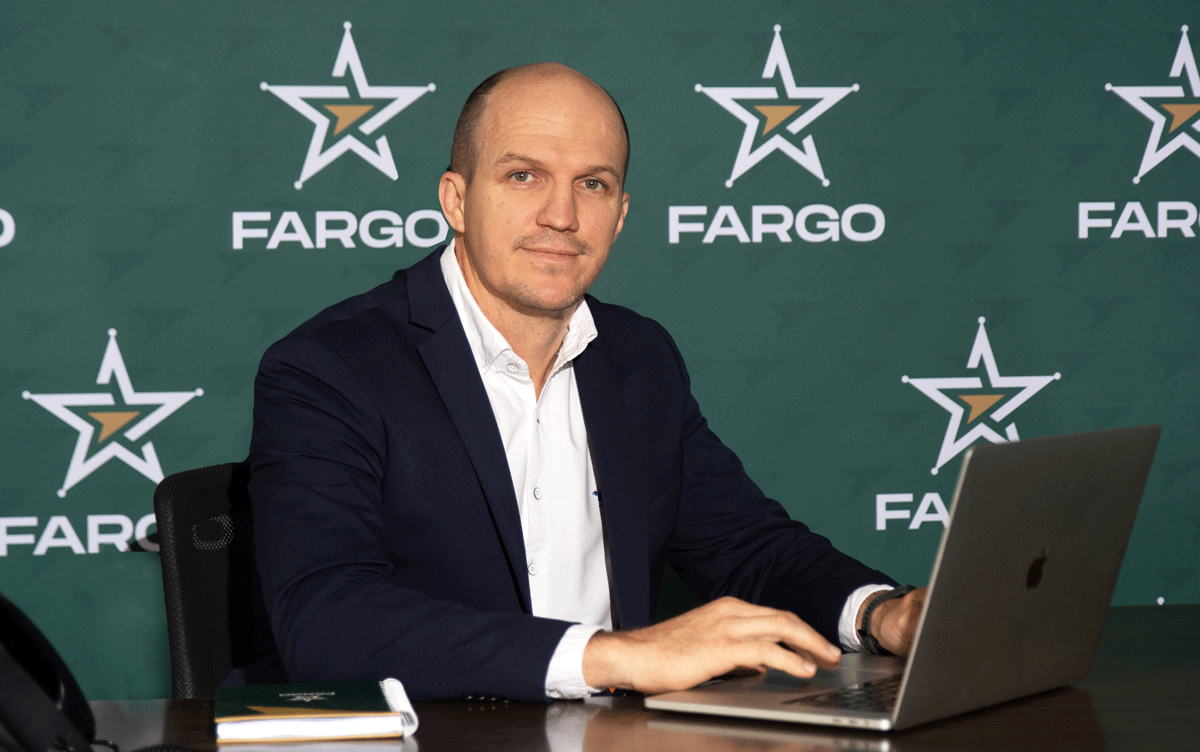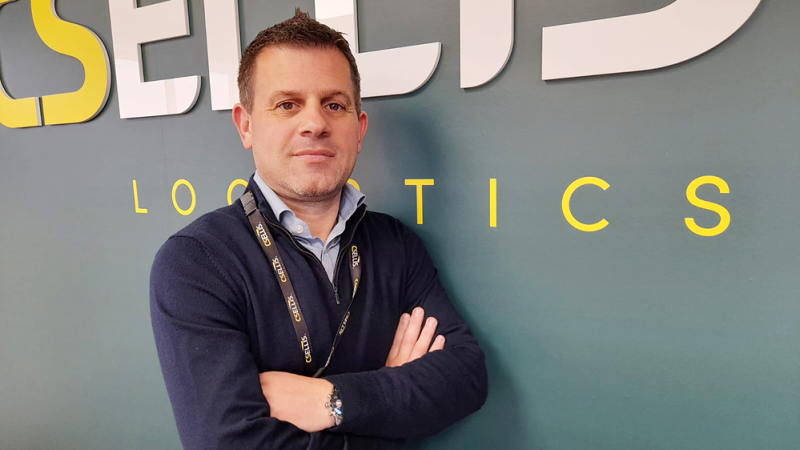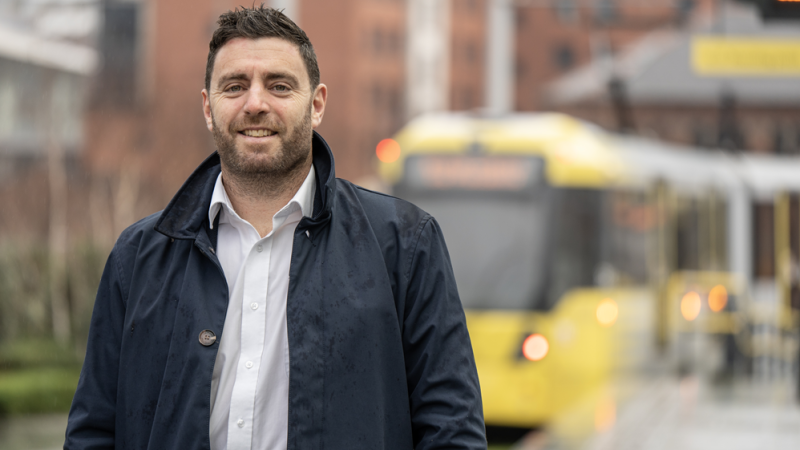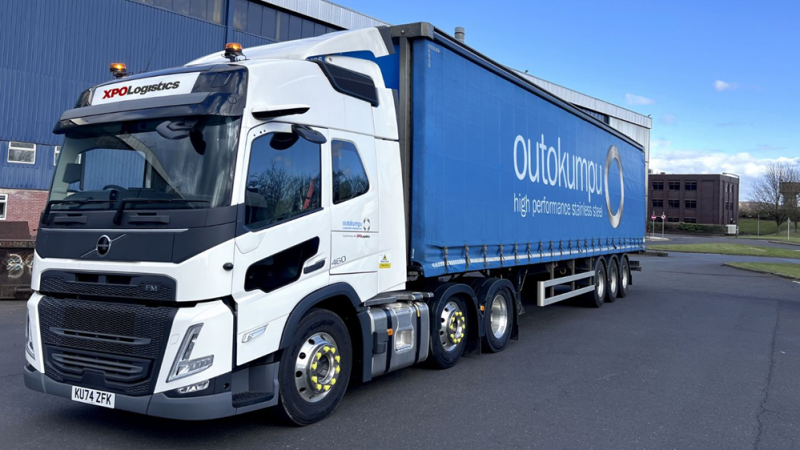Fargo Courier was established in 2003 as a sister company to the leading corporate security and protection service provider Wells Fargo which started its operations in Kenya in 1977. Establishing a courier operation in the late 1990s, a move fully supported by Wells Fargo’s clients, was a logical step, says Gray Cullen, Director of Group Operations.
Since then, the company has come a long way. What started with 4 land cruisers, 6 motorbikes and a handful of people, is today a fast-developing group with 126 branches around Kenya and Uganda, over 650 vehicles and over 4,000 permanent staff members.
“Although we started as a courier company and are now one of the two largest sector players in Kenya, today we are much more than that – we have 26 storage and contract logistics warehouses and a clearing and forwarding division that handles containers from all around the world coming into Africa and vice versa. In addition, we offer several other niche products such as production assembly lines, document archiving and retail shop outsourcing,” says Cullen.
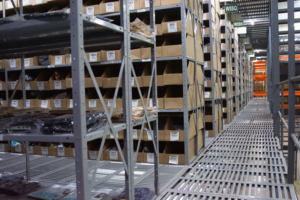 Internal strength
Internal strength
The transition into a large group has not been without challenges, Cullen admits, but he affirms that ultimately, they have made the business stronger. “Between 2010 and 2015 we quadrupled in size and managing that type of growth is not easy.”
“Also at that time, we were targeted by a multi-national competitor who ended up poaching a few key senior management team members. Although considered a major setback back then, it ultimately proved to be a positive event. It made us bring young team individuals from within the organisation into those managerial positions. What was pleasantly surprising to me was that those new managers turned out to be a lot stronger than those we had there previously. “
“It showed me personally that there was a lot more talent in the company than maybe we had previously thought,” he reflects and points out that ever since then, the group has looked to promote internally from within. “Today, over 90% of our branch managers started as a guard or courier escort and have grown through the system.”
Speaking about human resources, Cullen notes that Kenya has a dichotomy of well-educated individuals and a very poor job market. “As an attractive employer, we are getting IT graduates, supply chain professionals and other very highly trained candidates applying for the lowest level of staff employment. While this is sad for Kenya, for Fargo this is undoubtably a positive – we get individuals with a huge amount of capability all the way through our organisation and we try to develop that talent. Our future managers are amongst them.”
Through technology to sustainability
Although not necessarily the cheapest, Fargo is considered a premium service provider. Another differentiator is technology – the company has invested significantly in the latest technology solutions, such as transport management systems and warehouse management systems.
“Our technology offerings far exceed those of our competitors in Kenya,” Cullen affirms.
The focus on advanced technology allowed a true country-wide coverage – in 2013 Fargo rolled out a new, efficient system enabling even those in remote areas to enjoy a good courier service.
“Given Kenya’s technological limitations, we needed a solution that ran off a 3G network and was efficient enough to utilize solar as a source of power to enable the provision of better service delivery to these areas.”
 The success of Fargo’s system has not gone unnoticed – it has been internationally recognised for excellence in innovation and for service delivery in a complex logistics environment. In 2016, the company became the overall winner of the Logistics Achiever Awards (LAA) in Supply Chain Excellence, beating large multinational competitors. In the same year, Fargo Courier won the 2016 East Africa Frost & Sullivan Award for Growth Excellence Leadership.
The success of Fargo’s system has not gone unnoticed – it has been internationally recognised for excellence in innovation and for service delivery in a complex logistics environment. In 2016, the company became the overall winner of the Logistics Achiever Awards (LAA) in Supply Chain Excellence, beating large multinational competitors. In the same year, Fargo Courier won the 2016 East Africa Frost & Sullivan Award for Growth Excellence Leadership.
Innovation remained at the forefront during the Covid-19 years. While seen as downtime for many, Fargo took the global pandemic as an opportunity to establish a strong platform for its ambitious growth and expansion plans following a landmark business transformation project with SAP S/4HANA at its core. The project has evolved into a complete business solution with real-time reporting across the entire group, which can fully integrate with client systems – a task that has already been accomplished with some clients, to be followed by more.
Advanced technologies go hand in hand with an increased sustainability focus and Cullen affirms that an environmentally friendly operation is high on Fargo’s agenda. The company also supports and partners with a number of charities and NGOs promoting good causes in Kenya through its supply chain network. Fargo also raises money for Rhino Ark, a charitable trust that devotes all its energies to conserving Kenya’s water towers, mountain forest ecosystems and threatened biodiversity.
Expanded coverage
Fargo Courier is set to continue to innovate and improve its services, planning to expand its more recent business lines, such as freight forwarding, which today accounts for only a fraction of the company’s business volume. The company is also looking further afield.
“Business expansion is either driven by diversification or geographical expansion. We are planning to do both,” says Cullen. “We have already expanded into other sectors – warehousing and clearing and freight forwarding, one driving the business forward for the other. Fargo has a lot of room to grow in Kenya based on just the freight forwarding side, which offers opportunities in terms of more multinational clients and contracts.”
“With a contract base of around 3,000 clients, we are currently handling around a million transactions a month and are fully aware that exponential growth is only possible with expanding into other countries. The objective is to offer a simple yet secure, end-to-end supply chain and logistics solution to all of our clients across Eastern and Central Africa.”
He points out that each country requires a unique approach. Fargo prefers a steady approach, moving with its clients, looking to grow organically, and not wanting to let go of its service reputation.
“We already have a natural springboard with long-term clients well established in Kenya who want to replicate the same partnerships in Tanzania, Uganda, Rwanda, Congo, and other countries. The group needs to grow, and the only way it is going to achieve that is by going cross-border,” he affirms in conclusion.
